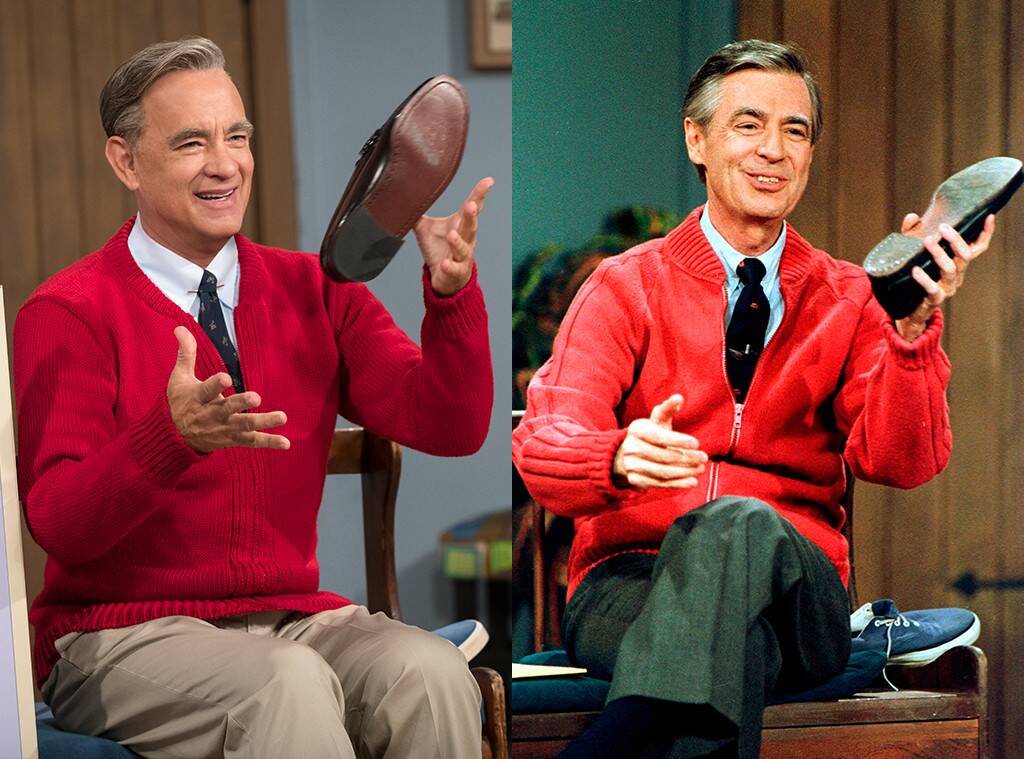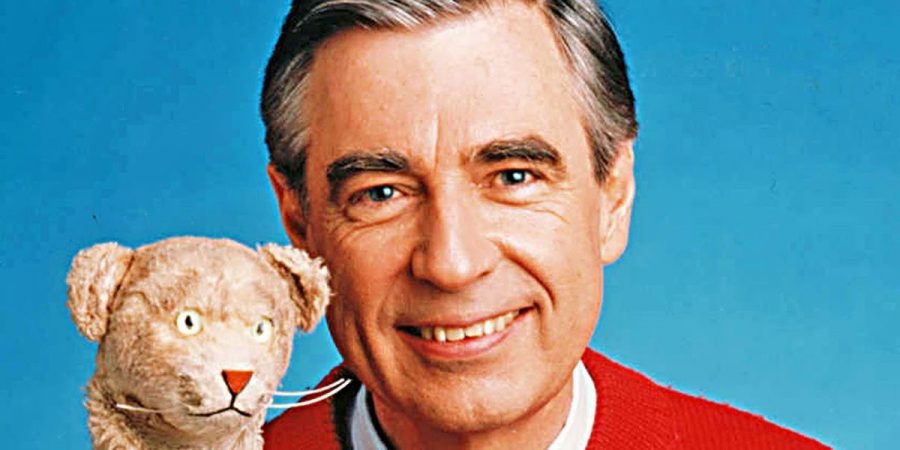Won’t you be my neighbor?
“Mr. Rogers’ Neighborhood” demonstrates an eloquent reflection of how we should treat each other
January 7, 2020
For many, the television show, “Mr. Rogers’ Neighborhood” is among one most loved children’s TV shows of all time, enchanting young children and parents with curiosity and enjoyment for more than 30 years.
The new film, “It’s a Beautiful Day in the Neighborhood,” is inspired by Fred Rogers and his career impacting young children, but it ultimately centers on Mr. Rogers’ impact on one adult, an emotionally broken journalist reluctantly assigned to write a profile piece on the well-known TV show host.
Lloyd Vogel, a journalist who worked with Esquire, who was known for his lack of humanity in his writing pieces. Matthew Rhys plays Vogel and wore the signs of a weary and broken man who had lost his mother at a young age and suffered from his father’s absence. Knowing that Vogel was emotionally broken, Mr. Rogers selected him amongst the rest to write his profile.
The film remains true to the TV show, “Mr. Rogers’ Neighborhood” in the music selection. It featured many of the songs heard on the show. The authenticity of Mr. Rogers’ role is spot-on with Tom Hanks, who was selected ideally to play this complex character. Despite the commonly accepted vision of who Mr. Rogers was, Hanks rises to the challenge and wows the crowd.

Mr. Rogers is portrayed as he was seen in real life. He was known to be patient and persistent in caring about everyone he met. He was an avid prayer and enjoyed reading scripture. The film briefly shows this spiritual aspect of Mr. Rogers – showing how he inclusive to all faiths and the movie remained true to that value.
The film alluded to symbols and film elements that sought a greater meaning. In one scene, one of Mr. Rogers’ beloved puppets is sad and sullen laying on a pillow before it takes the form of the broken journalist laying down for bed. The film also utilizes the famous little town found in the show to demonstrate different locations that layered the film with added authenticity and creativity.
Vogel finds success in the article. He takes his 450-word assignment and turns it into a masterpiece that makes the cover of Esquire magazine. Perhaps, Vogel finds even greater success in having met Mr. Rogers. He turns his life around and forgives his dying father. This film asks viewers to find themselves in Vogel’s shoes and recognize the power that a neighbor has to change someone’s life. The film is self-reflective and quite emotional for viewers because the film is made personal to everyone in the theatre.
Viewers will leave the cinema feeling affected by director Tom Junod’s story. Like Mr. Rogers reminded his young viewers to be a neighbor to all, this film reminds us to look inside ourselves and be a neighbor to each other.









